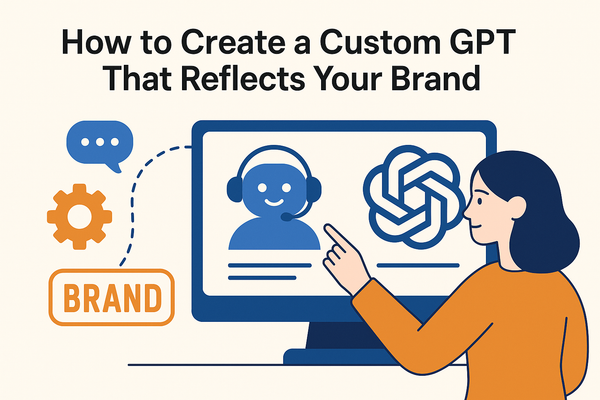Ensuring Security and Trust in Your AI apps

Table of Contents
- The State of AI App Security
- Data Protection Strategies
- Balancing Innovation and Security
- Wrap-up
- Common Questions About AI App Security
The State of AI App Security
AI apps are everywhere these days, but keeping them safe is tricky business. In 2023, over 4,000 AI security issues were reported - that's a 250% jump from the year before. Yikes! This huge increase shows just how important it is to lock down our AI tools.
Let's break down some of the biggest AI security headaches:
- Data leaks: AI models can accidentally spill private info
- Sneaky attacks: Bad guys try to trick AI into doing the wrong thing
- Bias problems: AI can make unfair choices without meaning to
- Hard-to-explain results: Sometimes we don't know why AI decides stuff
The government is starting to pay attention too. New rules are popping up to make sure AI plays nice and stays safe. But it's still a bit like the Wild West out there.
Here's a quick look at what people worry about most with AI apps:
| Concern | % of Users Worried |
|---|---|
| Privacy | 78% |
| Accuracy | 65% |
| Bias | 52% |
| Job loss | 47% |
So how do we fix this mess? Well, it starts with building trust. People need to feel good about using AI, or they'll just avoid it. That's where smart security comes in.
Check out this video for some tips on keeping AI apps safe:
Building secure AI isn't just about fancy tech - it's about making sure people feel comfortable using these cool new tools. At CalStudio, we help folks create AI apps that are both awesome and trustworthy. It's all about finding that sweet spot between innovation and safety.
Data Protection Strategies
When it comes to AI apps, keeping data safe is a big deal. Users want to know their info is locked up tight. So how do we do that?
First up, encryption. It's like putting your data in a secret code that only the right people can crack. This keeps it safe whether it's just sitting there or zooming across the internet.
- Use strong encryption for data at rest and in transit
- Regularly update encryption methods to stay ahead of threats
- Train staff on proper encryption practices
Next, we've got access control. Think of it as a bouncer for your data. Only the VIPs (aka authorized users) get in.
But wait, there's more. Regular security check-ups are key. It's like taking your car for a tune-up, but for your AI app's security.
This video dives deeper into building trust in AI apps. It's worth a watch if you want to level up your security game.
Ethical AI Development Practices
Now, let's talk ethics. It's not just about keeping data safe, but also using it right. AI can sometimes pick up bad habits, like biases. We need to catch these early.
- Regularly test AI models for bias
- Use diverse data sets in training
- Have a team dedicated to ethical AI practices
Transparency is huge too. Users should know how the AI is making decisions. It's like showing your work in math class - it builds trust.
And don't forget about guidelines. Every AI app developer should have a rulebook to follow. It keeps everyone on the same ethical page.
- Create clear ethical guidelines for AI development
- Review and update these guidelines regularly
- Make sure all team members understand and follow them
At CalStudio, we bake these ethical practices into every app created on our platform. It's not just an add-on, it's part of the core recipe.
Building User Trust Through Transparency
Let's face it, some folks are still wary of AI. So how do we build trust? By being open and honest about what our AI can (and can't) do.
Clear communication is key. Don't oversell your AI's abilities. Be upfront about its limitations. Users appreciate honesty more than empty promises.
| Trust-Building Action | User Impact |
|---|---|
| Clear AI capability explanations | Realistic expectations |
| Easy-to-use privacy controls | Increased user comfort |
| Regular security updates | Ongoing trust maintenance |
Give users control over their data. Let them decide what to share and what to keep private. It's their data, after all.
Lastly, keep users in the loop about security improvements. It shows you're always working to keep their data safe. Plus, it's a great way to show off your hard work!
Building trust in AI apps isn't rocket science. It's about being open, honest, and putting users first. With platforms like CalStudio, you can focus on creating great AI apps while we handle the trust-building tech behind the scenes.
Remember, trust is earned, not given. By following these strategies, you're well on your way to creating AI apps that users can rely on. And isn't that what it's all about?
Balancing Innovation and Security
AI app development moves at breakneck speed, but security can't be an afterthought. Let's look at how companies are walking this tightrope.
The challenges of securing AI apps are significant:
- Rapid release cycles leave little time for thorough testing
- Complex AI models can have unexpected vulnerabilities
- User data privacy concerns require careful handling
- Adversarial attacks can fool AI systems in subtle ways
Despite these hurdles, some companies are getting it right. Take healthcare startup Viz.ai, which uses AI to detect strokes from CT scans. They've prioritized security and privacy from day one, earning FDA clearance and HIPAA compliance.
Looking ahead, we're seeing promising trends in AI security:
- Automated security testing built into development pipelines
- Improved techniques for explaining AI decisions
- Federated learning to keep sensitive data on user devices
- Regulatory frameworks catching up to AI capabilities
Building trust in AI apps requires a delicate balance. Tools like CalStudio can help by providing a secure foundation for rapid development. With built-in analytics and customizable privacy controls, creators can focus on innovation while maintaining user trust.
Ultimately, the most successful AI apps will be those that users can rely on. As the Nature article on trust in AI points out, transparency and accountability are key. By baking security into every step of the process, from ideation to deployment, we can create AI apps that are both cutting-edge and trustworthy.
Wrap-up
Building trust in AI apps isn't rocket science, but it does take some work. The key is to be open about how your app works, keep user data safe, and make sure your AI behaves ethically. Testing thoroughly and getting feedback from users helps too.
As AI becomes more common, people will expect apps to be trustworthy right out of the gate. That's why it's smart to bake security and transparency into your development process from day one. Tools like CalStudio can help simplify this, letting you focus on creating great AI experiences without worrying about the technical details.
Remember, building trust is an ongoing process. Keep learning, stay up to date on best practices, and always put your users first. With the right approach, you can create AI apps that people feel good about using.
Next up, we'll tackle some common questions about AI app security and trust. These FAQs will help clear up any lingering concerns you might have about diving into AI development.
Common Questions About AI App Security
How do I start implementing security measures for my AI app?
Start by conducting a thorough risk assessment of your AI application. Identify potential vulnerabilities and sensitive data points. Then, implement basic security practices like encryption, access controls, and regular security audits. For more advanced protection, consider using AI-specific security tools or consulting with cybersecurity experts.
What are the typical costs associated with AI app security?
Costs can vary widely depending on the complexity of your AI app and the level of security needed. Basic measures like encryption and access controls may have minimal costs. More advanced security features or professional audits can range from a few hundred to several thousand dollars. Many AI platforms, including CalStudio, offer built-in security features as part of their service, which can help reduce overall costs.
Are there specific compliance requirements for AI apps in different industries?
Yes, compliance requirements can vary significantly by industry. For example, healthcare AI apps must comply with HIPAA regulations, while financial services apps may need to adhere to GDPR or PCI DSS standards. It's crucial to research and understand the specific regulations that apply to your industry and ensure your AI app meets these requirements.
How often should I update the security measures for my AI app?
Security should be an ongoing process. Regularly review and update your security measures, ideally every 3-6 months or whenever there are significant changes to your app or the threat landscape. Stay informed about new security threats and best practices in AI security. Platforms like CalStudio often provide automatic security updates, helping to keep your app protected with minimal effort.
Can I build a secure AI app without coding knowledge?
Absolutely! Many modern AI platforms, including CalStudio, are designed to allow non-technical users to create secure AI apps without coding. These platforms often include built-in security features and best practices, making it easier to develop apps that prioritize data protection and user privacy. However, it's still important to understand basic security principles to make informed decisions about your app's settings and features.



